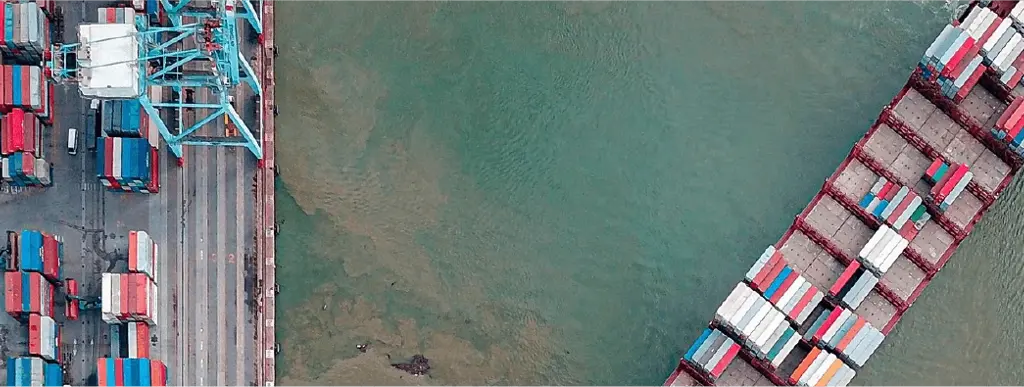
The fluctuating market demand and mass product customizations have made it more difficult for manufacturers to manage their inventory effectively. Moreover, many manufacturers entered the fourth industrial revolution with siloed departments and IT solutions that prevent them from optimizing material management.
Unsurprisingly, more and more companies turn to MES and WMS software for the solution. Considering that MES provides real-time insight into the production process and WMS oversees warehouse operations, integrating the two solutions helps connect the dots – and enables using data to build better products more efficiently.
Your warehouse is a hub of activity. It’s in charge of ensuring that the production floor has enough raw materials and other required components to work smoothly and with no unscheduled downtime. Your warehouse is also responsible for keeping the end customers happy and satisfied with agile fulfillment strategies and timely shipments.
The proper warehouse layout design, i.e., one that fully utilizes the available space so that both finished goods and raw materials are easy to store and retrieve, also influences your factory’s performance. That, combined with warehouse automation that frees your warehouse operators from manual and repetitive activities, results in time and cost reductions.
Ultimately, end-to-end traceability for each unit that enters and leaves your warehouse enables you to identify bottlenecks within your supply chain and fulfillment strategy – and to increase revenue by making data-driven decisions.
The most significant benefit of using MES to manage plant logistics and materials is synchronizing communication and information exchange between the warehouse and production teams. The correlation starts with the replenishment process, just-in-time delivery of the new materials to the line, and the put-away process of finished goods.
To efficiently support all these processes, the warehouse requires access to data provided by the MES system. For example, MES tracks the Bill of Materials, production order schedule, and current production status, all required to accurately and optimally handle replenishment orders.
Warehouse Management as we know it is changing. From software used to manage the receiving, put away, locate, pick, and ship products to a far more sophisticated system that closely integrates with production systems and provides a holistic overview of your factory’s performance.
Using a solution like DELMIA Apriso allows you to maintain sufficient inventory levels, shorten your delivery dates, reduce waste, enabling you to produce higher quality products at a lower cost.
Sounds interesting? Learn more about the benefits of combining your production and material management processes in MES by watching this webinar or downloading our guide on “Managing logistics processes in MES.” Both will provide answers to:
All of the Andea Guides are based on the “Meet the ExpertS” webinar series that connects Andea experts with industry professionals. The webinars cover interesting topics on how MES can improve various production processes, including; Logistics, Quality Management, and Plant Maintenance.
Grzegorz is the VP of Services Department at Andea and one of the company’s co-founders. His responsibilities include applications and solutions architecture, knowledge management, and quality standards assurance. He has 23 years of professional experience, including 19 years with Manufacturing Execution Systems. Grzegorz is recognized by customers and his colleague as a trusted adviser and professional team player. Grzegorz has graduated from the Rzeszow University of Technology where he received his MSc in Control and Computer Engineering.
Amitava Dassarma is a Senior Solution Architect at Andea with around 20 years of experience designing, leading, managing, and implementing factory solutions for companies in various manufacturing sectors. These include FMCG, Metal, Paper, Plastics, Electrical Equipment, and Automotive industries. In his previous position at IBM, he led a team of MES consultants responsible for developing and maintaining a global MES deployment for a large FMCG client. He held a similar role at Tata Consultancy Services, where he was in charge of an offshore team developing a global MES solution for a Tier 1 automotive supplier. He has hands-on experience with the DELMIA Apriso MES platform and Invensys Wonderware Factory Suite Products. Amitava received his MSc with a specialization in Mathematics from the Indian Institute of Technology, Kharagpur. Currently, Amitava, together with his family, resides in Krakow.
Maciej Danda is a Solution Architect in Andea. He has over ten years of professional experience working in the MES/MOM space and with the DELMIA Apriso platform. In his current role, he is responsible for the design, implementation, and enhancements of software solutions. Maciej gained experience working on projects in various industries, including Automotive, Packaging, Consumer Goods, Cosmetics, Medical Devices. He has graduated from AGH University of Science and Technology in Krakow.



